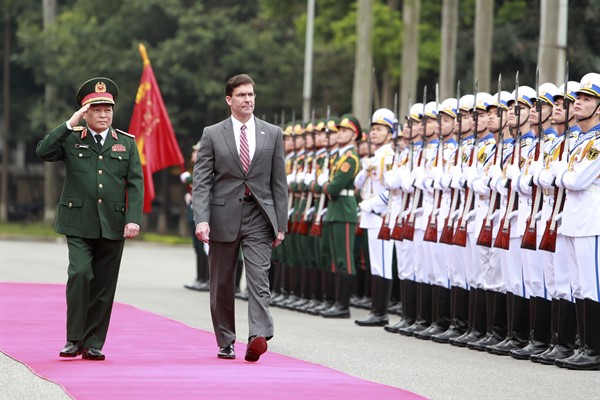With China-Vietnam relations deteriorating as a result of Beijing's provocations, Hanoi has signaled a possible shift in alliances. Whether Vietnam actually follows through, though, likely depends on who takes over the ruling Communist Party during next year's National Congress.
In a major new defense white paper, its first in 10 years, Vietnam has begun signaling that it could abandon its long-standing foreign policy strategy of hedging between major powers like China and the United States and move more definitively into Washington’s orbit. These documents are generally full of turgid jargon, but this one, released late last year, is unusually blunt, with a warning to China about the consequences of stepping up its aggressive behavior toward Vietnam in the South China Sea.
Despite its potential policy significance, though, the defense paper has been overshadowed in Vietnam by the country’s domestic politics. The ruling Communist Party elites are already jockeying for position ahead of the next National Congress in January 2021, when the party will elect its slate of senior leaders. President Nguyen Phu Trong, who also serves as party general secretary, is in poor health and set to retire, and there is no clear front-runner to replace him. The outcome of this political infighting will likely play an important role in determining just how much Hanoi is willing to recalibrate its foreign policy.

